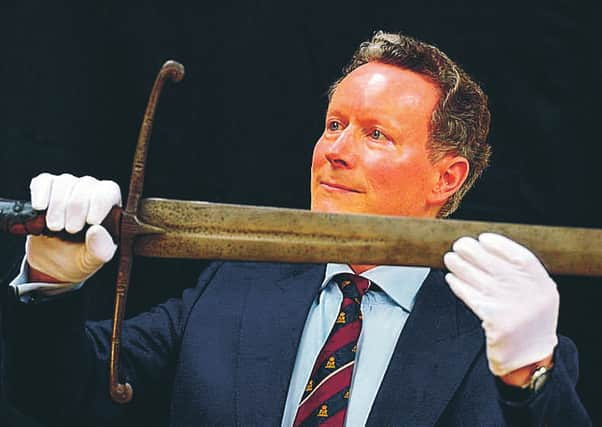Experiential tourism: ‘I don’t let them take photos. It’s the memory’


For the “experiential” traveller, it is the memory of their trip that counts.
From being invited into the home of Robert the Bruce’s descendants to lambing on a Hebridean croft or to eating black bun baked to granny’s recipe in a farmhouse kitchen, experiential tourism has been growing fast in Scotland.
Advertisement
Hide AdAdvertisement
Hide AdThe country’s culture, history, food and landscape are ideal for creating these rich experiences which are sought out by the discerning and demanding global traveller. Authenticity is everything.
With lockdown endangering the future of tourism, the industry may have to evolve to cater for fewer people choosing to buy less and experience more in the post-pandemic years.
Lord Charles Bruce, a direct descendant of Robert the Bruce, is among those at the forefront of experiential tourism in Scotland.
He now welcomes visitors into his family home of Broomhall House in Fife to get up close to the family collection of paintings and curios, which include a cast of the king’s skull and his state sword.
Dining with someone with royal DNA is also an option at Broomhall as are handling birds of prey, such as Harris Hawks and Eurasian Eagle-Owls, on the lawn.
Before coronavirus put the world into lockdown, Lord Bruce had 60 tours on his books so far this year, with most of his clients coming from the United States. “There is a global market place for this type of tourism and Scotland is such a prominent destination. It has a value that we must not cheapen and we must not lose it.”
With no more than 20 visitors at one time, he compares his tours to a pop-up Fringe show with no two performances the same. “These people do not consider themselves as tourists, they see themselves more as guests,” he said. “They want the most authentic experience and if they don’t get it, they could very well kick up a stink.
“The people who come here have often just sold up a business. What is interesting is that they have chosen to come to Scotland to reward themselves for a lifetime of hard work.
Advertisement
Hide AdAdvertisement
Hide Ad“Every time they return from a visit, they are then ambassadors for Scotland.”
He adds: “You shouldn’t be looking just at the growth in numbers of people and cruises coming to Scotland you should be looking at every single experience that these people have.”
Lord Bruce cracks open the history of Scotland using items in his family collection, including the curios collected by James Bruce, who reached the source of the River Nile 250 years ago, and an old estate ledger book which shows the 1826 debt owed by the family of industrialist Andrew Carnegie.
Lord Bruce added: “I don’t let them take photos. The whole point is a memory and it is the quality of the memory. That is what gives them the bragging rights.”
Lord Bruce likened this form of tourism to the Grand Tours of the 18th century that drew the young members of the privileged classes to the Continent, usually to Italy, for a cultural experience.
Chris Greenwood, senior tourism insight manager at VisitScotland, said the organisation had seen a developing global trend amongst consumers seeking “life-fulfilling experiences” and those which closely aligned with their own personal values. “The opportunity to find a hidden gem, unique experience that perhaps is only known to locals adds to the experiential journey,” he said.
Tourists, both domestic and international, spend around £3.5bn in Scotland a year. It is known that 33 per cent of visitors are motivated by culture and a further 14 per cent by activities.
Marc Crothall, chief executive of industry representative body the Scottish Tourism Alliance, said experiential tourism could grow further in the wake of coronavirus. “When we come out of this we might just want to do stuff. It might not be about buying stuff but people wanting to get out there and live the dream.”
Comments
Want to join the conversation? Please or to comment on this article.